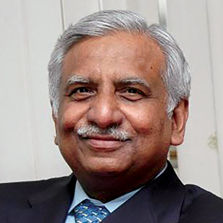
2019 marked the end for several airlines—Thomas Cook and Wow Air, to name a few—but none had the corporate travel share of Mumbai-based Jet Airways.
Founded by Naresh Goyal in the early 1990s, Jet Airways had grown into India's second-largest carrier, accounting for almost one-fifth of all passengers carried by Indian airlines in 2018 and flying 600 domestic and 380 international routes. It also had been building up debts of more than $1.2 billion, compounded by strong competition on domestic routes from such low-cost carriers as IndiGo, rising fuel costs and a weakening rupee. By April, having been unable to secure emergency funding to keep operations going, Jet Airways suspended all flights.
Goyal, now under investigation for fraud, bore much of the criticism for Jet Airways' failure. The Economic Times, for example, reported that he last year rebuffed offers that could have saved the airline because he did not wish to lose control of it.
The collapse has changed the product quality available to business travelers in India, according to Lewis Burroughs, aviation consultancy ICF's head of aviation in India. In the short term, the failure has affected capacity, which can push up fares, he said. Ultimately, that will be offset as India's other carriers—IndiGo, SpiceJet and Vistara—expand internationally.
That new capacity will look very different to business travelers, however. The loss of Jet Airways leaves Vistara and Air India, which is having its own financial issues, as the only full-service carriers in the country.
"That means the number of business-class seats domestically and into short-haul markets, such as the Middle East and Southeast Asia, is unlikely to reach levels of pre-Jet collapse, so business passengers will have to settle for less luxury," Burroughs said.
Still, Burroughs is optimistic that India's aviation will recover, noting that after the similar 2012 collapse of Kingfisher the industry within a few years "had largely evolved to better serve the market."
"I think that Jet's legacy will be felt for a few more years," Burroughs said. "But in a market such as India, nothing stays the same for long."